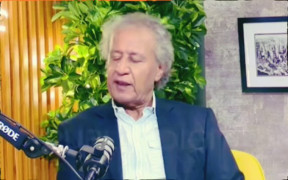News_Icon
Chief Minister (5k+ posts)

انٹرنیشنل کمیشن آف جیورسٹس (آئی سی جے) نے پاکستان کی پارلیمنٹ سے منظور ہونے والی 26ویں آئینی ترمیم کو عدلیہ کی آزادی، قانون کی حکمرانی اور انسانی حقوق کے تحفظ پر کاری ضرب قرار دے دیا ۔
26ویں آئینی ترمیم پاکستان کے عدالتی نظام کی ساخت اور طریقہ کار میں نمایاں ادارہ جاتی تبدیلیاں لاتی ہے، خاص طور پر سپریم کورٹ اور ہائی کورٹس کے حوالے سے۔
آئی سی جے کے سیکرٹری جنرل سانتیاگو کانٹن نے کہا "یہ تبدیلیاں عدالتی تقرریوں کے عمل اور عدلیہ کی اپنی انتظامیہ پر سیاسی اثر و رسوخ کو غیر معمولی سطح تک بڑھا دیتی ہیں،" ۔
"یہ عدلیہ کی صلاحیت کو کمزور کرتی ہیں کہ وہ ریاست کی دیگر شاخوں کے زیادتیوں کے خلاف ایک مؤثر اور آزادانہ طور پر کام کر سکے اور انسانی حقوق کا تحفظ کر سکے۔"
سینیٹ نے 26ویں آئینی ترمیم اتوار 20 اکتوبر کی شام اسے پیش کیے جانے کے چند گھنٹوں میں منظور کر لی۔ بعد ازاں یہ قومی اسمبلی میں پیش کی گئی، جو پارلیمنٹ کا ایوان زیریں ہے، جہاں اسے آج صبح یعنی پیر 21 اکتوبر کو منظور کیا گیا۔ اس کے فوراً بعد، صدر کی منظوری بھی مل گئی اور اسے سرکاری گزٹ میں شائع کر دیا گیا۔
ترمیمات کے مسودے کو خفیہ رکھا گیا تھا اور پارلیمنٹ میں پیش کیے جانے اور منظور ہونے سے قبل عوامی مشاورت نہیں کی گئی۔
کانٹن نے مزید کہا "یہ باعث تشویش ہے کہ اتنی اہم آئینی ترمیم کو انتہائی خفیہ طریقے سے اور 24 گھنٹے سے بھی کم وقت میں منظور کیا گیا،"۔
"قانون کی حکمرانی کا بنیادی اصول اور اختیارات کی تقسیم، جس کے مطابق شہریوں اور ان کے آزادانہ طور پر منتخب کردہ نمائندوں کو قانون سازی کے عمل میں شرکت کا حق حاصل ہے، اس معاملے میں کھلے عام پامال کیا گیا ہے۔"
آئی سی جے خاص طور پر درج ذیل تبدیلیوں پر تشویش کا اظہار کرتا ہے، جو عدلیہ کی آزادی کو بری طرح متاثر کرتی ہیں کیونکہ وہ عدلیہ کو غیر ضروری طور پر انتظامیہ اور پارلیمنٹ کے کنٹرول میں دے دیتی ہیں:
جوڈیشل کمیشن آف پاکستان کی تشکیل
پاکستان کا عدالتی کمیشن (جے سی پی) سپریم کورٹ اور ہائی کورٹس کے ججوں کے لیے تقرریاں نامزد کرتا ہے۔ 26ویں آئینی ترمیم سے قبل، جے سی پی میں اکثریت ججوں کی ہوتی تھی۔ تاہم، ترمیم نے جے سی پی کی تشکیل میں تبدیلی کر دی ہے تاکہ اس میں قومی اسمبلی کے دو اراکین، سینیٹ کے دو اراکین، اور ایک خاتون یا غیر مسلم رکن شامل ہوں، جنہیں اسپیکر قومی اسمبلی نامزد کریں گے۔ وزیر قانون، پاکستان کے اٹارنی جنرل، اور بار کا ایک نمائندہ پہلے ہی جے سی پی کے رکن تھے اور بدستور ہیں۔
جے سی پی کی تشکیل میں یہ تبدیلیاں اس پر براہ راست سیاسی اثر و رسوخ کی اجازت دیتی ہیں اور جے سی پی کے عدالتی اراکین کو اقلیت میں بدل دیتی ہیں۔ مثال کے طور پر سپریم کورٹ کے ججوں کی تقرری کے لیے، جے سی پی کے 13 میں سے صرف پانچ ارکان جج ہونے لازمی ہیں (یعنی چیف جسٹس آف پاکستان، آئینی بنچز کے سینئر جج، اور سپریم کورٹ کے تین سینئر ترین جج)۔
جوڈیشل کمیشن آف پاکستان کے انتظامی اختیارات
جے سی پی کو ججز کی تقرری کے علاوہ، سپریم کورٹ اور ہائی کورٹس کے اندر "آئینی بنچز" کے قیام اور نامزدگی کا اختیار بھی دیا گیا ہے۔ یہ بنچز آئین کی تشریح اور بنیادی حقوق کے نفاذ سے متعلق معاملات پر خصوصی دائرہ اختیار رکھیں گے۔
یہ اختیار جے سی پی کو سیاسی طور پر متاثرہ بنچز بنانے کی اجازت دیتا ہے جو مخصوص کیسز، بشمول سیاسی اہمیت کے معاملات، سننے کے لیے موزوں ہوں۔ اس کے نتیجے میں شدید خدشہ ہے کہ یہ جے سی پی کی طرف سے مقرر کردہ بنچز آزاد اور غیر جانبدار نہیں ہوں گے۔
چیف جسٹس آف پاکستان کی تقرری
26ویں آئینی ترمیم سے قبل سپریم کورٹ کے سینئر ترین جج کو چیف جسٹس آف پاکستان (سی جے پی) مقرر کیا جاتا تھا۔ اس تقرری میں انتظامیہ یا پارلیمنٹ کا کوئی عمل دخل نہیں تھا۔ 26ویں آئینی ترمیم نے آئین میں ترمیم کی ہے تاکہ ایک "خصوصی پارلیمانی کمیٹی" (ایس پی سی) کو سپریم کورٹ کے تین سینئر ترین ججوں میں سے کسی ایک کو سی جے پی کے طور پر نامزد کرنے کا اختیار دیا جائے۔
"نااہلی" کی بنیاد پر برطرفی
ترمیمات کے مطابق، سپریم جوڈیشل کونسل (ایس جے سی) – ایک عدالتی ادارہ جو ججز کی برطرفی کی سفارش کرنے کا ذمہ دار ہے – سپریم کورٹ اور ہائی کورٹس کے ججز کی برطرفی کی سفارش کر سکتی ہے اگر اسے یہ معلوم ہو کہ وہ اپنے دفتر کے فرائض انجام دینے میں "نااہل" ہو سکتے ہیں۔ اس حوالے سے 26ویں آئینی ترمیم "نااہلی" کی تعریف نہیں کرتی اور نہ ہی اس کے لیے کوئی معیار یا حد مقرر کرتی ہے۔ اس سے پہلے، ایس جے سی کے ذریعے ججز کی برطرفی کی بنیاد ناتوانی یا بدعنوانی تھی۔
یہ ترمیمات براہ راست بین الاقوامی معاہدہ برائے شہری و سیاسی حقوق (آئی سی سی پی آر) کے آرٹیکل 14 کی خلاف ورزی کرتی ہیں، جو عدالتوں اور ٹریبونلز کے سامنے مساوات اور ایک قابل، آزاد اور غیر جانبدار ٹریبونل کے ذریعے منصفانہ اور عوامی سماعت کے حق کی ضمانت دیتا ہے، جو قانون کے مطابق قائم کیا گیا ہو۔ پاکستان کے آئین کا آرٹیکل 10A بھی منصفانہ مقدمے کے حق کو تسلیم کرتا ہے۔
اقوام متحدہ کی انسانی حقوق کمیٹی، جو آئی سی سی پی آر کی دفعات کی تشریح اور اطلاق کی ذمہ دار ماہرین کی ایک آزاد تنظیم ہے، نے مستند طور پر قرار دیا ہے کہ یہ حق "ایک مطلق حق ہے جو کسی بھی استثنا کے تابع نہیں ہے" اور ایک "ایسی صورتحال جہاں عدلیہ اور انتظامیہ کے اختیارات اور فرائض واضح طور پر قابل امتیاز نہ ہوں، یا جہاں انتظامیہ عدلیہ کو کنٹرول کرنے یا ہدایت دینے کے قابل ہو، یہ ایک آزاد ٹریبونل کے تصور سے مطابقت نہیں رکھتی۔"
"سانتیاگو کانٹن نے کہا آئی سی جے سمجھتا ہے کہ موجودہ عدالتی نظام میں کچھ اصلاحات کی ضرورت ہو سکتی تھی تاکہ عدالتوں کو زیادہ مؤثر اور جوابدہ بنایا جا سکے اور عدالتی تقرریوں کا عمل زیادہ شفاف اور جامع ہو،" ۔
"لیکن یہ ترمیمات عدلیہ کو زیر نگین کرنے اور اسے انتظامیہ کے کنٹرول میں لانے کی ایک کوشش ہیں، جو قانون کی حکمرانی، اختیارات کی تقسیم، اور عدلیہ کی آزادی کے بنیادی اصولوں کی خلاف ورزی ہے۔"
قابل اطلاق بین الاقوامی معیارات
اقوام متحدہ کی انسانی حقوق کمیٹی نے اس بات پر زور دیا ہے کہ آئی سی سی پی آر کے آرٹیکل 14 کے تحت اپنی ذمہ داریوں کو پورا کرنے کے لیے، "ریاستوں کو عدلیہ کی آزادی کی ضمانت دینے کے لیے مخصوص اقدامات کرنے چاہئیں، ججز کو فیصلہ سازی میں کسی بھی سیاسی اثر و رسوخ سے محفوظ رکھنے کے لیے آئین یا قوانین کی منظوری کے ذریعے واضح طریقہ کار اور معروضی معیار مقرر کرنے چاہئیں، تاکہ عدالتی اراکین کی تقرری، تنخواہ، مدت ملازمت، ترقی، معطلی اور برطرفی کے حوالے سے شفافیت ہو اور ان پر تادیبی کارروائی کی جا سکے۔"
اقوام متحدہ کی انسانی حقوق کمیٹی اور اقوام متحدہ کے ججز اور وکلاء کی آزادی کے خصوصی نمائندے نے بار بار اس بات پر زور دیا ہے کہ عدالتی تقرری کے ادارے انتظامیہ سے آزاد ہونے چاہئیں، اور ان میں تنوع ہو اور وہ زیادہ تر (اگر مکمل طور پر نہیں) ججز اور قانونی پیشہ ور افراد پر مشتمل ہوں؛ اور انہیں شفاف طریقہ کار اپنانا چاہیے۔
اقوام متحدہ کی انسانی حقوق کمیٹی نے مستند طور پر یہ بھی قرار دیا ہے کہ ججز کو صرف "سنگین بدعنوانی یا نااہلی" کی بنیاد پر برطرف کیا جانا چاہیے۔
عدلیہ کی آزادی سے متعلق اقوام متحدہ کے بنیادی اصول (اقوام متحدہ کے بنیادی اصول) یہ بھی فراہم کرتے ہیں کہ "عدالت کے اندر ججز کو دیے جانے والے مقدمات کی تقسیم عدالتی انتظامیہ کا داخلی معاملہ ہے"۔ یہ اصول یہ بھی فراہم کرتے ہیں کہ "تمام تادیبی، معطلی یا برطرفی کی کارروائیاں مقررہ عدالتی ضابطہ اخلاق کے معیارات کے مطابق طے کی جائیں گی" اور ججز کو صرف "نااہلی یا ایسے رویے کی بنیاد پر برطرف کیا جا سکتا ہے جو انہیں اپنے فرائض انجام دینے کے قابل نہ بناتا ہو"۔
Last edited:





































